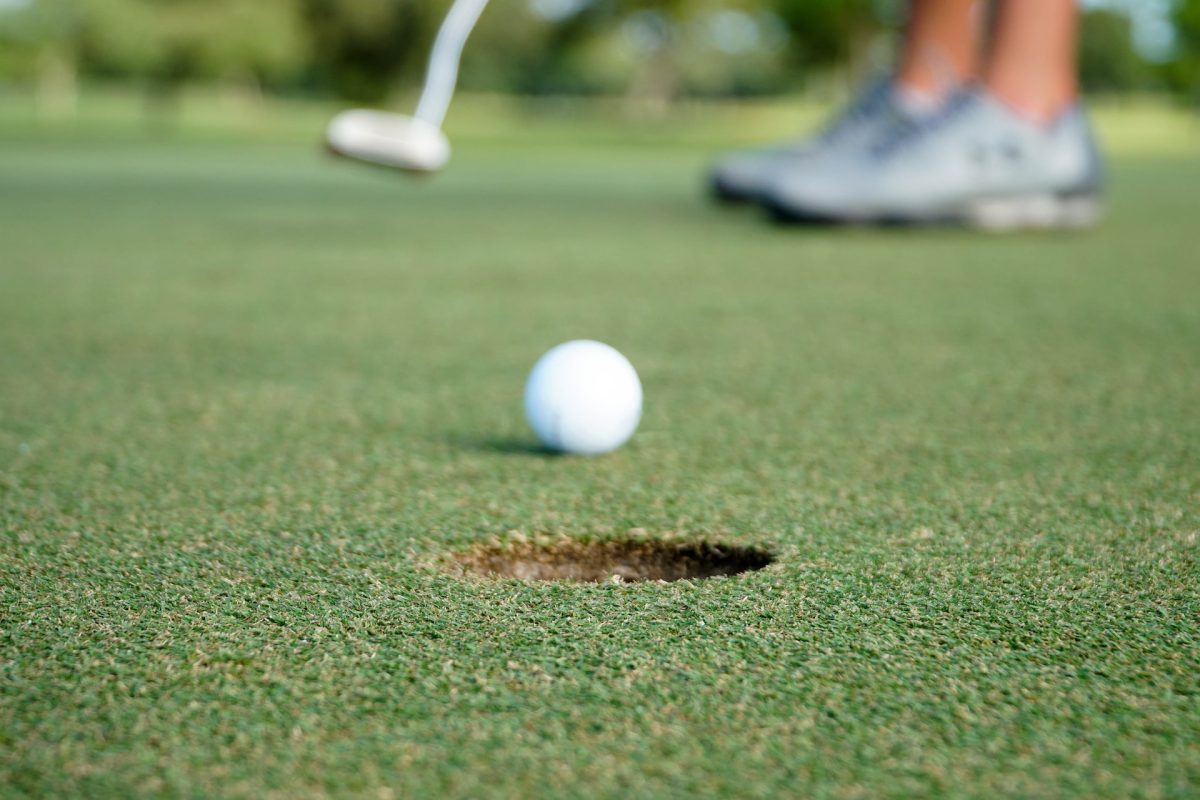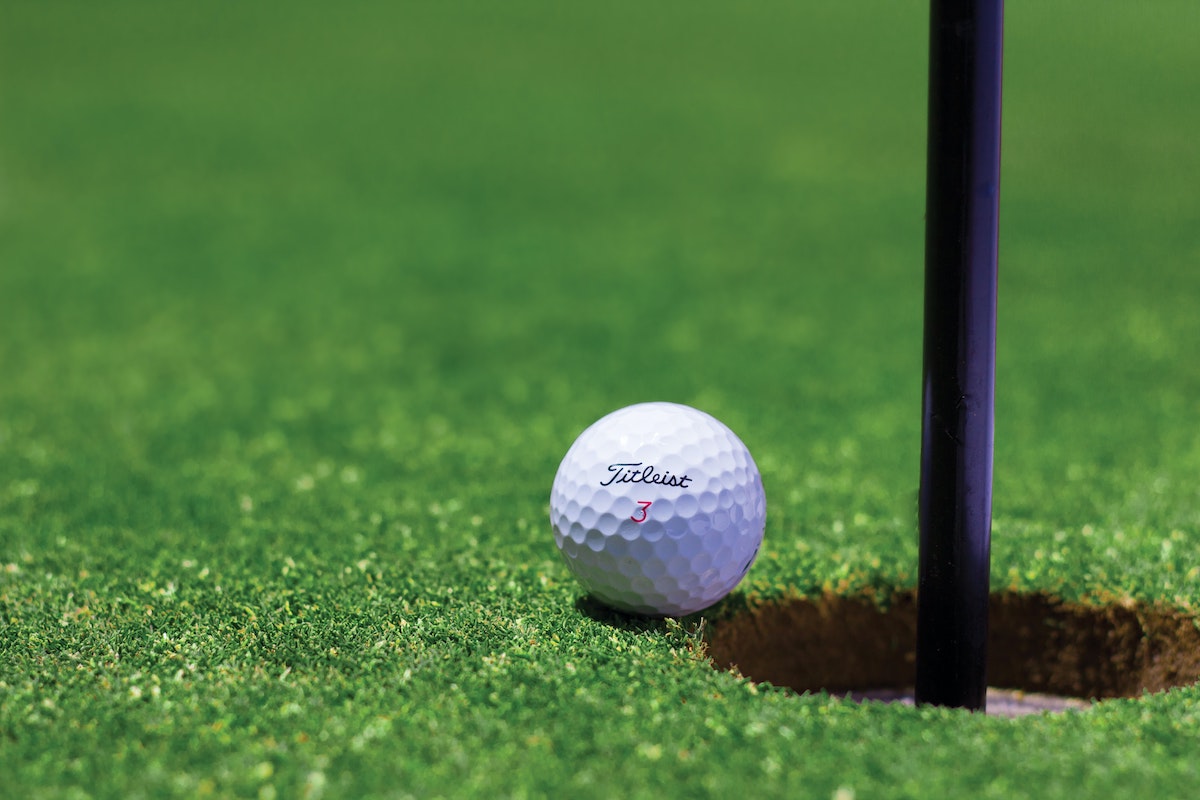Golf: one of the most timeless and genteel sports a person can play. Many will tell you that business deals are done on the golf course rather than in the boardroom. Beyond wheeling and dealing, it’s also a fantastic way to socialize with friends and colleagues. For people in warmer climates like Florida and South Carolina, it’s a year-round sport. For the northeast, ‘tis the season to return to the golf course, but you may be rusty.
Tired of constantly hitting a ball into the water rather than anywhere near a hole? Feel like your golf game has plateaued in recent years? Sure, practice makes progress. However, a golf range finder may be what’s missing from your arsenal. The tool acts as the perfect teammate, measuring distance and accuracy to help a golfer decide how hard to hit the ball. One can help you lower your score, negate the need to fish balls out of the water, and impress your golf crew. Get the 4-1-1 on the missing piece to your golf game.

What is a golf range finder?
The simplest way to define a golf range finder is a tool that helps a golfer estimate the distance of their shot. Instead of manually counting paces, slowing down the game, and turning it into a DIY math project, a golf range finder does the work for you. This information lets players to understand how hard they need to hit the ball. It can affect how they swing, the club they use, and, ultimately, their score. If you’re new to the game, less is more in golf. The fewer strokes needed to get the ball in the hole, the better your score.

What’s the best golf range finder?
It depends, but it usually comes down to at laser or GPS range finder. Lasers calculate distances to target with a light beam. They’re typically more accurate than their GPS counterparts, but the drawback is that these golf range finders can only gauge distances of the targets they can “see” with their viewfinders. GPS range finders tap into networks of satellites and provide an estimate for the distance to the front, back, and center of your pin spot. They’ll also pick up hazards and bunkers that even eagle eyes may not notice. Bushnell’s offerings are extremely popular among PGA golfers and caddies.

Why you need a golf range finder
Whether you feel your game is lagging or are simply looking for a leg-up against stiff competition, a golf ranger is a must-have this year. Here’s why.
It helps you gauge distance accurately
You have enough to think about on the golf course, from entertaining a prospective client to who will grab your next drink. When it comes to the nuts and bolts of the game, you’ll likely mentally try to calculate the distances even with a golf range finder. However, the machine can give you a more precise measurement, and you can capitalize on that information with the decisions you make next, such as the club to use and how hard to hit the ball. Bushnell’s four-figure price tags may be out of reach, but even budget options are typically highly accurate.
It helps you avoid water, sand traps, and other obstacles, too
Nothing is more embarrassing than hitting the ball into the water. However, other traps and challenges pop up on the golf course, from sand traps to some you may not be able to see, like a patch of tall grass. The range finder can pick up on these obstacles, helping you better navigate the course and avoid them. In the end, it can reduce the number of strokes you need and get you a better score.
A golf range finder is incredibly simple to use
Range finders are a no-fuss tool — which is good because golf should be relaxing, even for competitive types. Displays are easy to read — no need to squint or do any calculations. Pin-lock technology hones in on the intended target, not the tree in front of it. Range finders are compact and easy to tote to, from, and around a golf course.
They have long battery life and won’t die in the middle of your round (hopefully)
A full day of golf is fun, but you don’t want the battery to go on you. You want your trusty range finder with you the entire time, helping you at every hole. Batteries typically last 40 to 50 rounds of golf and are rechargeable. You likely won’t need to replace a battery completely for three to five years. They’re pretty economical for a tool that’s quite literally game-changing.
Golf range finders help you determine the distance of a shot, improving a golfer’s accuracy and score. Range finders are a must-have for pro golfers and their caddies. Many use Bushnell range finders, but even more budget-friendly ones are precise. You’ll probably choose between a laser or GPS. Lasers are generally more accurate, but GPS ones tap into networks of satellites to provide more information. Range finders can help you avoid seen and unseen obstacles. If nothing else, you’ll know which club to use, and go from office golf zero to hero.
Editors' Recommendations
- Here’s why you should join a pickleball league
- These tiny, cleverly designed Japanese RVs make your small camper van look like a palace
- Make your next camping cookout epic with the best mobile kitchens
- Van life might just make a comeback with electric vehicles and tech-forward concepts
- The North Face is now making GORE-TEX denim because why not




